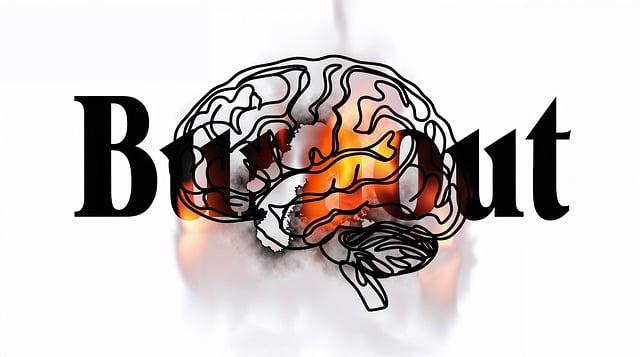Crisis Intervention Teams (CITs) offer specialized care for young adults with cancer, addressing psychological challenges through tailored therapy programs. These teams focus on emotional regulation, mental health education, and crisis intervention, empowering survivors to manage stress, anxiety, and stigma. Effective CIT training incorporates evidence-based techniques like trauma-informed care, CBT, mindfulness, and burnout prevention strategies. The goal is to provide compassionate support, improve well-being, and enhance coping skills for young adults facing cancer issues, with a key emphasis on patient outcomes and healthcare facility improvements.
In today’s challenging medical landscape, crisis intervention teams (CITs) play a pivotal role in supporting young adults facing cancer. CIT training programs equip healthcare professionals and loved ones with essential tools to navigate these critical moments. This article explores the unique challenges of young adult cancer survivors and highlights the importance of specialized CIT training. We delve into the key components effective programs include, strategies for preparing support systems, and methods for measuring success in improving patient outcomes, focusing on therapy tailored to cancer issues in young adults.
- Understanding Crisis Intervention Teams: A Lifesaving Resource for Young Adults with Cancer
- The Unique Challenges Faced by Young Adult Cancer Survivors
- Essential Components of Effective Crisis Intervention Training Programs
- Preparing Support Systems: Equipping Family, Friends, and Caregivers with Crisis Tools
- Measuring Success: Evaluating the Impact of Intervention Team Training on Patient Outcomes
Understanding Crisis Intervention Teams: A Lifesaving Resource for Young Adults with Cancer

Crisis Intervention Teams (CITs) are a vital resource designed to provide immediate and effective support for young adults facing cancer and related life-altering diagnoses. These specialized teams offer a much-needed safety net, focusing on the unique psychological and emotional challenges that often accompany a cancer diagnosis during one’s formative years. By integrating therapy for young adults with cancer issues, CITs empower individuals to navigate their journey with enhanced coping skills development.
Through a multifaceted approach, these teams foster compassion cultivation practices and trauma support services tailored to meet the specific needs of this demographic. The goal is to help young adults cultivate resilience, manage anxiety, and develop healthy coping mechanisms to cope with the profound changes cancer brings. By offering timely intervention and comprehensive care, CITs contribute significantly to improving the overall well-being and quality of life for those facing cancer as young adults.
The Unique Challenges Faced by Young Adult Cancer Survivors

Young adult cancer survivors face unique challenges as they navigate their post-treatment lives. This demographic often grapples with the transition from active treatment to long-term survival, a process that can be emotionally taxing and physically demanding. Many young adults struggle with feelings of anxiety, depression, and fear related to their cancer diagnosis and its potential recurrence. The impact of cancer on their physical and mental health can lead to difficulties in maintaining relationships, pursuing education or careers, and adapting to everyday life.
Therapy specifically designed for young adults with cancer issues plays a crucial role in addressing these challenges. These specialized programs focus on emotional regulation, providing tools to cope with stress and anxiety associated with the disease. Mental health education within these interventions helps survivors understand their experiences and breaks down the stigma surrounding mental illness in this population. By incorporating creative approaches and peer support, crisis intervention team training can foster resilience, promote healthy coping mechanisms, and empower young adult cancer survivors to thrive despite their battles.
Essential Components of Effective Crisis Intervention Training Programs

Effective crisis intervention team training programs for young adults facing cancer issues need a multi-faceted approach. Firstly, they should incorporate evidence-based therapeutic techniques tailored to this demographic’s unique needs. This includes trauma-informed care, which helps address potential past experiences and reduces re-traumatization. Techniques such as cognitive behavioral therapy (CBT), mindfulness meditation, and anxiety relief strategies are invaluable tools for managing crisis situations.
Additionally, training should emphasize burnout prevention. Young adults navigating cancer often face significant emotional strain, and early intervention can prevent professional fatigue. Programs that integrate stress management, self-care practices, and resilience-building activities empower team members to support both patients and themselves. These components collectively foster a supportive environment, ensuring crisis intervention teams are equipped to provide compassionate, effective care for young adults battling cancer.
Preparing Support Systems: Equipping Family, Friends, and Caregivers with Crisis Tools

Preparing support systems is a crucial aspect of crisis intervention team training programs, especially when focusing on therapy for young adults with cancer issues. Family, friends, and caregivers play a vital role in a person’s recovery journey. Equipping them with effective tools allows them to provide better care and support during crises. Training programs should include education on risk management planning for mental health professionals, ensuring that both the patient and their loved ones understand how to navigate potential triggers and challenging situations.
Cultural sensitivity in mental healthcare practice is another essential component. By training crisis intervention teams to be mindful of cultural differences, they can offer tailored support that respects and embraces diverse backgrounds. This approach boosts confidence among young adults facing cancer issues, fostering an environment where they feel understood and empowered during their therapy journey.
Measuring Success: Evaluating the Impact of Intervention Team Training on Patient Outcomes

Measuring success is a vital aspect of evaluating the effectiveness of crisis intervention team training programs, especially when focusing on patient outcomes in young adults facing cancer issues. By implementing structured evaluation methods, we can assess whether these intensive training sessions lead to positive changes in participants’ mental health and overall well-being. One key metric could be tracking improvements in anxiety and depression levels using standardized assessment tools before and after the program. Additionally, qualitative feedback from participants through surveys or interviews provides insights into their experiences and perceived benefits, such as enhanced coping strategies and improved social support networks.
The impact of these training programs extends beyond individual patient outcomes. Effective crisis intervention team training can lead to better-equipped healthcare facilities, resulting in more compassionate and efficient trauma support services for young adults with cancer. Incorporating compassion cultivation practices into the curriculum has been shown to foster resilience and reduce stress among caregivers, which indirectly benefits patients. Moreover, integrating mental health education programs designed for these specific populations can empower young adults to navigate their cancer journey with enhanced emotional intelligence and self-care skills.
Crisis intervention team training programs play a pivotal role in equipping individuals and support systems with the tools needed to address the unique challenges faced by young adult cancer survivors. By enhancing empathy, communication skills, and crisis management techniques, these programs foster an environment that supports and strengthens patient outcomes, ultimately providing valuable therapy for young adults navigating cancer issues. Effective training ensures that families, friends, and caregivers are empowered to offer immediate and effective assistance, recognizing the critical role they play in a survivor’s journey.














